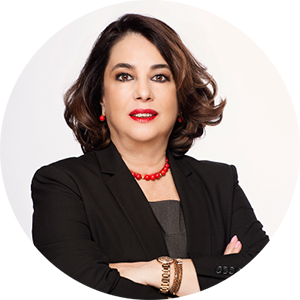In 2015 we had:
1. Germany: Chancellor Angela Merkel
2. Brazil: President Dilma Rousseff
3. IMF: Managing Director Christine Lagarde
2015 W20 Turkey Communiqué said:
Increase the number of women both in public and private sector leadership positions.
2016 W20 China Communiqué said:
The potential for the participation in and contribution of women to the economy is not being fully realized, nor is their representation and voice in global economic governance. It is critical that the G20 acknowledge that gender-based inequalities are a systemic aspect of the current functioning of the world economy.
2017 W20 German Communiqué said:
This communiqué and the attendant implementation plan build on previous W20
communiqués and articulate game-changing measures and directional indicators for
monitoring progress in delivering on the G20’s gender equality commitments.
2018 W20 Argentina Communiqué said:
Gender equality is a key driver of sustainable and inclusive growth. This view is at the core
of the G20 Argentina 2018 agenda and is in line with Sustainable Development Goal 5,
which aims to “achieve gender equality and empower all women and girls”.
2019 W20 Japan Communiqué said:
Jointly review progress, within G20, for achieving gender parity in leadership and all levels of decision making in the public and private sectors by 2030.
2020 W20 Saudi Arabia Communiqué said:
Ensure equal representation of women at all levels of decision making in national and global political and economic bodies including private and public sectors.
And in 2021 we have:
1. Germany: Chancellor Angela Merkel
2. Bangladesh: Prime Minister Sheikh Hassina Wajed
3. Norway: Prime Minister Erna Solberg
4. Scotland: First Minister Nicola Sturgeon
5. Nepal: President Bidhya Devi Bhandari
6. Namibia: Prime Minister Saara Kuugongelwa
7. Denmark: Prime Minister Mette Frederiksen
8. Estonia: President Kersti Kaljulaid
9. Taiwan: President Tsai Ing-Wen
10. Serbia: Prime Minister Ana Brnabic
11. Singapore: President Halimah Jakob
12. New Zealand: Prime Minister Jacinda Ardern
13. Iceland: Prime Minister Katrin Jakobsdottir
14. Ethiopia: President Sahle Work-Zewde
15. Georgia: President Salome Zourabichvili
16. Trinidad & Tobago: President Paula- Mae Weekes
17. Barbados: Prime Minister Mia Mottley
18. Finland: Prime Minister Sanna Marin
19. Slovakia: President Zuzana Caputova
20. Moldova: President Maia Sandu
21. Greece: Prime Minister Katerina Sakellaropolou
22. Lithuania: Prime Minister Ingrida Šimonytė
23. Gabon: Prime Minister Rose Christiane Raponda
24. Estonia: Prime Minister Kaja Kallas
And let us not forget about:
25. US: Vice President Kamala Harris
26. IMF: Managing Director Kristalina Georgieva
27. European Commission: President Ursula von der Leyen
28. European Central Bank: President Christine Lagarde

























